Often referred to as the “second brain,” the gut plays a vital role not only in digestion but also in the immune system and even mental health. Understanding and maintaining gut health is no longer a niche interest but a mainstream concern that affects everyone.
The connection between gut health and various bodily functions is profound. A healthy gut can enhance digestion, improve nutrient absorption, and bolster the immune system. Moreover, it is linked to mental health, with studies showing that gut bacteria can influence mood and cognitive function. Conversely, poor gut health can lead to a host of problems, including digestive disorders, weakened immunity, and chronic illnesses such as IBS (Irritable Bowel Syndrome) and inflammatory diseases.
This guide, “12 Steps To Heal Your Gut Naturally,” aims to provide a comprehensive guide to improving gut health through natural means. Whether you are experiencing gut-related issues or simply want to optimize your health, these steps are designed to offer practical, actionable advice backed by scientific research.
The approach we advocate for in this guide is holistic and natural. Instead of relying on medications that often come with side effects, we focus on dietary changes, lifestyle adjustments, and natural remedies that promote long-term health. The steps outlined in this guide are accessible and adaptable, making it possible for anyone to implement them regardless of their starting point.
Each step of this guide delves into a specific aspect of gut health, providing detailed information, practical tips, and strategies to help you on your journey to a healthier gut. We start by laying the foundation with an understanding of gut health and its importance. From there, we explore the role of diet, the benefits of probiotics and prebiotics, and the importance of detoxification. We also cover crucial lifestyle factors such as hydration, stress management, sleep, and physical activity.
Herbal remedies and other natural approaches are highlighted as effective tools for supporting gut health. We discuss common gut health destroyers and how to avoid them, helping you create an environment in which your gut can thrive. The latter part of the guide focuses on creating a personalized gut health plan, monitoring progress, and ensuring long-term maintenance. By the end of this guide, you will have a robust understanding of how to care for your gut and, by extension, your overall health.
Gut health is not a quick fix; it is a continuous journey. The steps outlined in this guide are designed to be sustainable and integrative, forming habits that will support your gut health for years to come. Whether you are just beginning your journey or looking to refine your approach, “12 Steps To Heal Your Gut Naturally” provides the tools and knowledge you need to succeed.
Step 1 – Understanding Gut Health

Gut health is a term that encompasses the balance and function of the gastrointestinal tract, also known as the digestive system. The gut includes a complex system of organs such as the stomach, intestines, and colon, along with a diverse community of microorganisms collectively referred to as the gut microbiome. This microbiome consists of bacteria, viruses, fungi, and other microbes that play a crucial role in maintaining health.
The gut microbiome is incredibly diverse, with trillions of microorganisms living within the digestive system. These microbes perform essential functions such as breaking down food, synthesizing vitamins, regulating the immune system, and protecting against harmful pathogens. A balanced microbiome is key to a healthy gut and overall well-being.
Understanding the significance of gut health requires a deeper look into the gut-brain axis, a bidirectional communication network between the gut and the brain. This connection is facilitated by the nervous system, hormones, and the immune system. The gut produces neurotransmitters such as serotonin, which influence mood and behavior. Consequently, a healthy gut can contribute to mental well-being, while an imbalanced gut may be linked to mental health issues such as anxiety and depression.
Digestive System

The digestive system starts with the mouth and extends to the anus, involving several organs that work together to process food, absorb nutrients, and eliminate waste. Here’s a brief overview of the main components:
- Mouth: Digestion begins here with chewing and the secretion of saliva, which contains enzymes that start breaking down carbohydrates.
- Esophagus: A muscular tube that transports food from the mouth to the stomach.
- Stomach: Here, food is mixed with gastric juices, including hydrochloric acid and digestive enzymes, which break down proteins.
- Small Intestine: This is where most nutrient absorption occurs. It is divided into three parts: the duodenum, jejunum, and ileum.
- Large Intestine: Also known as the colon, it absorbs water and salts from the remaining indigestible food matter and transports waste to be excreted.
- Rectum and Anus: The final stages of the digestive system, where waste is stored and eventually expelled from the body.
Balance Of The Gut Microbiome
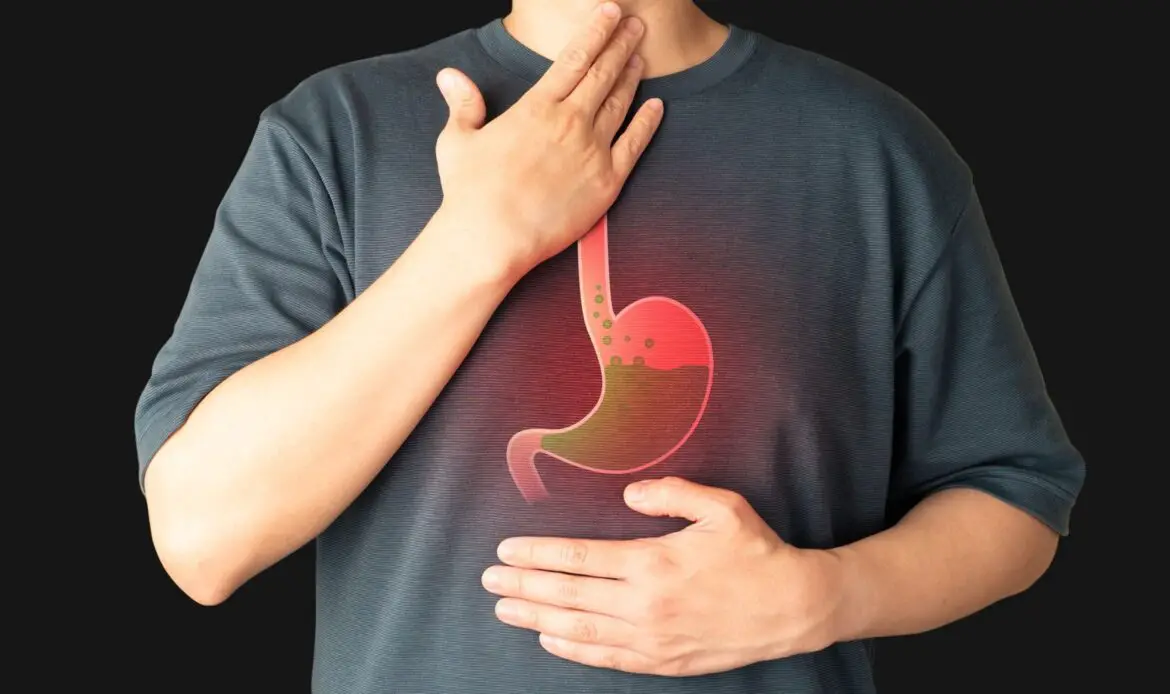
The balance of the gut microbiome can be influenced by various factors, including diet, lifestyle, stress, and medication use. An imbalance, known as dysbiosis, can lead to digestive issues, inflammation, and a compromised immune system. Symptoms of poor gut health may include bloating, constipation, diarrhea, fatigue, and food intolerances.
Several factors can disrupt the gut microbiome:
- Poor Diet: Diets high in processed foods, sugar, and unhealthy fats can negatively impact gut health.
- Antibiotics: While essential for treating bacterial infections, antibiotics can also kill beneficial gut bacteria, leading to dysbiosis.
- Chronic Stress: Stress can alter gut motility and increase inflammation, negatively affecting the microbiome.
- Lack of Sleep: Poor sleep can disrupt the gut-brain axis and negatively impact gut health.
- Sedentary Lifestyle: Regular physical activity is important for maintaining a healthy gut.
Improving gut health involves making mindful choices that promote a balanced microbiome and optimal digestive function. This includes eating a diverse and nutrient-rich diet, incorporating probiotics and prebiotics, managing stress, staying hydrated, getting adequate sleep, and engaging in regular physical activity.
In the following steps, we will explore each of these aspects in detail, providing practical steps and strategies to help you achieve and maintain a healthy gut. By understanding the importance of gut health and how to nurture it, you can take control of your well-being and enhance your quality of life.
Step 2: The Role of Diet in Gut Health

Diet plays a pivotal role in shaping the gut microbiome and maintaining overall gut health. What we eat can either nourish our gut bacteria or disrupt the delicate balance, leading to various health issues. In this step, we will delve into the specific dietary choices that support a healthy gut and those that should be minimized or avoided.
The Foundation of a Gut-Healthy Diet

A gut-healthy diet is rich in diverse, whole foods that provide essential nutrients and promote a balanced microbiome. Here are the key components of such a diet:
- Fiber: Dietary fiber is crucial for gut health as it feeds beneficial bacteria. Foods high in fiber include fruits, vegetables, legumes, nuts, seeds, and whole grains. Soluble fiber, found in foods like oats, apples, and beans, dissolves in water and forms a gel-like substance in the gut, slowing digestion and helping to regulate blood sugar levels. Insoluble fiber, found in whole grains and vegetables, adds bulk to the stool and aids in regular bowel movements.
- Fermented Foods: These foods are rich in probiotics, which are live bacteria beneficial to gut health. Common fermented foods include yogurt, kefir, sauerkraut, kimchi, miso, and kombucha. Regular consumption of fermented foods can enhance the diversity and abundance of beneficial gut bacteria.
- Prebiotic Foods: Prebiotics are types of fiber that feed probiotics, helping them thrive in the gut. Foods high in prebiotics include garlic, onions, leeks, asparagus, bananas, and chicory root.
- Polyphenols: These are plant compounds with antioxidant properties that can promote the growth of beneficial gut bacteria. Foods rich in polyphenols include berries, green tea, dark chocolate, red wine (in moderation), and olive oil.
Foods to Limit or Avoid

Certain foods can negatively impact gut health by promoting the growth of harmful bacteria or causing inflammation. It’s important to limit or avoid these foods to maintain a healthy gut:
- Processed Foods: These often contain high levels of unhealthy fats, sugars, and artificial additives that can disrupt the gut microbiome.
- Sugar and Artificial Sweeteners: Excessive sugar intake can feed harmful bacteria and yeast, leading to an imbalance. Artificial sweeteners, such as aspartame and sucralose, can also negatively affect gut bacteria.
- Red and Processed Meats: High consumption of red and processed meats has been linked to an increased risk of gut inflammation and certain diseases.
- Fried Foods: These are typically high in unhealthy fats and can be difficult to digest, leading to gut discomfort and imbalances.
Creating a Balanced Meal Plan

To support gut health, aim to create balanced meals that include a variety of gut-friendly foods. Here are some tips for planning your meals:
- Breakfast: Start your day with a high-fiber breakfast such as oatmeal topped with fresh fruits and nuts, or a smoothie made with leafy greens, berries, and a spoonful of flaxseeds.
- Lunch: Incorporate a mix of vegetables, lean proteins, and whole grains. For example, a salad with mixed greens, grilled chicken, quinoa, avocado, and a dressing made from olive oil and lemon juice.
- Dinner: Focus on fiber-rich vegetables, a source of healthy fats, and a protein. A stir-fry with broccoli, bell peppers, tofu, and a side of brown rice can be a great option.
- Snacks: Choose gut-friendly snacks like yogurt with honey, apple slices with almond butter, or carrot sticks with hummus.
Hydration and Gut Health

Staying hydrated is essential for maintaining a healthy gut. Water aids in digestion, nutrient absorption, and the elimination of waste. Aim to drink at least eight glasses of water a day, and more if you are active or live in a hot climate.
Herbal teas can also support hydration and provide additional benefits for gut health. For example, ginger tea can help with digestion, while peppermint tea can soothe the digestive tract.
A gut-healthy diet is diverse, balanced, and rich in fiber, fermented foods, prebiotics, and polyphenols. By making mindful dietary choices, you can nourish your gut microbiome, support digestive health, and enhance overall well-being. In the next step, we will explore the benefits of probiotics and prebiotics in greater detail and how they can be incorporated into your daily routine.
Step 3: Probiotics and Prebiotics: The Gut’s Best Friends
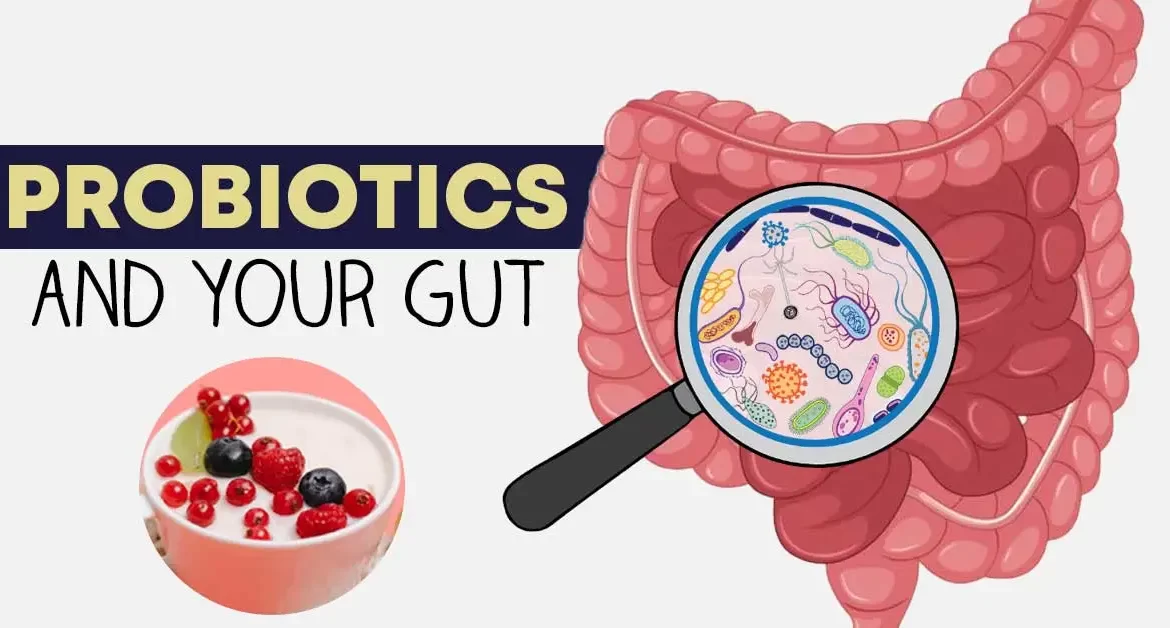
The human gut is home to a vast community of microorganisms, collectively known as the gut microbiome. Among these microorganisms, probiotics and prebiotics play crucial roles in maintaining a healthy and balanced gut. In this step, we will explore what probiotics and prebiotics are, their benefits, and how to incorporate them into your diet effectively.
Understanding Probiotics
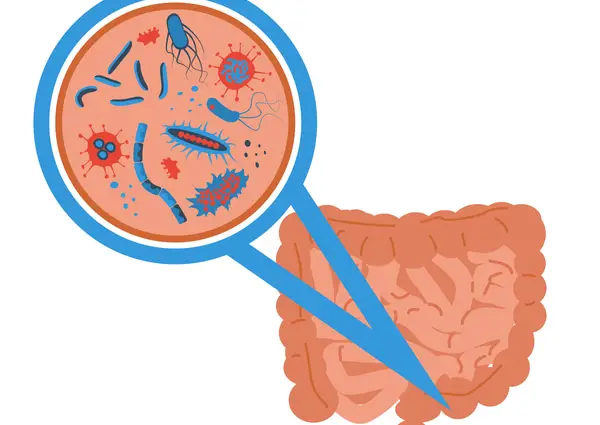
Probiotics are live microorganisms, primarily bacteria, and yeast, that provide health benefits when consumed in adequate amounts. They are often referred to as “good” or “friendly” bacteria because they help maintain the balance of the gut microbiome and support overall gut health. Some of the most common probiotic strains include Lactobacillus and Bifidobacterium species.
Benefits of Probiotics
- Enhancing Digestive Health: Probiotics can help break down food, making nutrients more accessible and aiding in digestion. They also play a role in alleviating symptoms of digestive disorders such as irritable bowel syndrome (IBS), diarrhea, and constipation.
- Boosting Immune Function: A significant portion of the immune system resides in the gut. Probiotics can enhance the gut’s immune response, helping to ward off infections and illnesses.
- Balancing the Gut Microbiome: Probiotics help maintain a healthy balance of gut bacteria by inhibiting the growth of harmful bacteria and promoting the proliferation of beneficial ones.
- Reducing Inflammation: Certain probiotic strains have anti-inflammatory properties that can help reduce inflammation in the gut, which is linked to various chronic diseases.
Common Sources of Probiotics
Probiotics can be found in a variety of fermented foods and dietary supplements. Some common sources include:
- Yogurt: Choose plain, unsweetened yogurt with live and active cultures.
- Kefir: A fermented milk drink that contains a diverse array of probiotic strains.
- Sauerkraut: Fermented cabbage that provides beneficial bacteria and fiber.
- Kimchi: A spicy Korean dish made from fermented vegetables.
- Miso: A Japanese seasoning made from fermented soybeans.
- Tempeh: A fermented soy product with a firm texture.
- Kombucha: A fermented tea beverage that contains probiotics.
Understanding Prebiotics

Prebiotics are non-digestible fibers and compounds that act as food for probiotics, promoting their growth and activity in the gut. Unlike probiotics, prebiotics are not live organisms but are equally important for maintaining a healthy gut microbiome.
Benefits of Prebiotics
- Supporting Probiotic Growth: Prebiotics provide the necessary nutrients for probiotics to thrive, ensuring a healthy and balanced gut microbiome.
- Improving Digestive Health: By stimulating the growth of beneficial bacteria, prebiotics can help improve digestion and prevent constipation.
- Enhancing Mineral Absorption: Prebiotics can enhance the absorption of essential minerals such as calcium and magnesium, supporting bone health.
- Reducing Inflammation: Like probiotics, prebiotics can also help reduce inflammation in the gut.
Common Sources of Prebiotics
Prebiotics are found in various plant-based foods. Some common sources include:
- Garlic: Contains inulin, a type of prebiotic fiber.
- Onions: Rich in fructooligosaccharides (FOS), which promote the growth of beneficial bacteria.
- Leeks: Provide a good source of inulin.
- Asparagus: Contains prebiotic fibers that support gut health.
- Bananas: A convenient source of prebiotic fiber, particularly when slightly underripe.
- Chicory Root: Extremely high in inulin and often used as a coffee substitute.
- Jerusalem Artichokes: Also known as sunchokes, they are high in inulin.
Combining Probiotics and Prebiotics
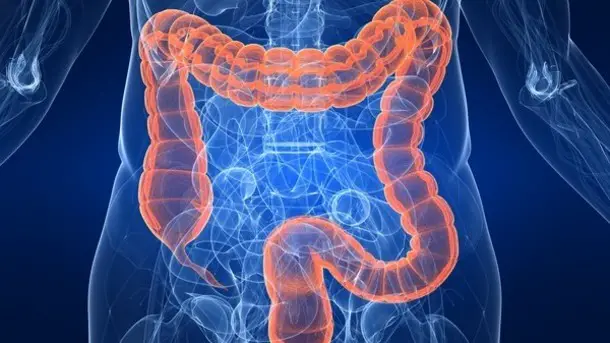
For optimal gut health, it is beneficial to combine probiotics and prebiotics in your diet, creating a synergistic effect known as synbiotics. Here are some tips for incorporating both into your daily routine:
- Start Your Day with a Synbiotic Breakfast: Combine yogurt (probiotic) with a banana and a sprinkle of flaxseeds (prebiotic) for a gut-friendly start to your day.
- Include Fermented Foods in Meals: Add a side of sauerkraut or kimchi to your lunch or dinner to boost probiotic intake.
- Snack on Prebiotic-Rich Foods: Munch on raw garlic or onion slices, or enjoy a handful of almonds as a prebiotic-rich snack.
- Drink Kombucha: Sip on kombucha throughout the day for a refreshing probiotic boost.
- Experiment with Recipes: Try making your own fermented foods at home, such as homemade yogurt, kefir, or pickled vegetables.
Probiotics and prebiotics are essential components of a healthy gut. By incorporating a variety of probiotic and prebiotic-rich foods into your diet, you can support the growth and activity of beneficial bacteria, promoting overall gut health and well-being. In the next step, we will discuss the importance of detoxification and how to clear the path for a healthier gut.
Step 4: Detoxification – Clearing the Path

Detoxification is a crucial step in healing your gut naturally. The process of detoxification involves removing harmful toxins and waste products from your body, creating an environment where beneficial gut bacteria can thrive. In this chapter, we will explore the importance of detoxification, methods to support your body’s natural detox processes, and practical steps to incorporate detox-friendly habits into your daily routine.
Understanding Detoxification

Detoxification is the body’s natural process of eliminating toxins that can accumulate from various sources, including processed foods, environmental pollutants, medications, and stress. The liver, kidneys, digestive system, skin, and lungs all play vital roles in detoxifying the body. When these systems function optimally, they can effectively remove toxins, but poor diet, lifestyle choices, and exposure to harmful substances can overwhelm them, leading to toxin buildup and impaired gut health.
Benefits of Detoxification

- Improved Digestion: Detoxification can help clear the digestive tract of harmful substances, improving nutrient absorption and reducing digestive discomfort.
- Enhanced Gut Microbiome: By removing toxins, detoxification supports a healthy balance of gut bacteria, promoting the growth of beneficial microbes.
- Increased Energy Levels: Detoxification can boost energy levels by reducing the burden on the body’s detoxification systems and improving overall metabolic function.
- Reduced Inflammation: Clearing toxins from the body can help reduce inflammation, which is linked to numerous chronic health conditions.
- Better Immune Function: A detoxified body is better equipped to fight off infections and maintain a strong immune system.
Methods of Detoxification

Several methods can support the body’s natural detoxification processes. Here are some effective ways to detoxify your gut and overall body:
- Hydration: Drinking plenty of water is essential for flushing out toxins and supporting kidney function. Aim for at least eight glasses of water a day, and consider adding lemon or cucumber slices for an extra detoxifying boost.
- Fiber-Rich Foods: Fiber helps to bind and eliminate toxins from the digestive tract. Include plenty of fruits, vegetables, whole grains, legumes, nuts, and seeds in your diet to ensure adequate fiber intake.
- Fasting: Intermittent fasting or periodic fasting can give your digestive system a break, allowing it to clear out waste and toxins more effectively. Consult with a healthcare professional before starting any fasting regimen.
- Herbal Teas: Certain herbal teas, such as dandelion root, milk thistle, and green tea, have detoxifying properties that support liver function and overall detoxification.
- Sweating: Engaging in activities that induce sweating, such as exercise, saunas, or hot baths, can help eliminate toxins through the skin.
- Liver-Supportive Foods: Foods that support liver health, such as garlic, onions, beets, cruciferous vegetables (like broccoli and Brussels sprouts), and citrus fruits, can enhance the liver’s detoxification capabilities.
- Avoiding Toxins: Reduce exposure to toxins by choosing organic produce, avoiding processed foods, and minimizing the use of plastics and chemical-laden products.
Detoxification-Friendly Habits
Incorporating detoxification-friendly habits into your daily routine can have a significant impact on your gut health and overall well-being. Here are some practical steps to help you get started:
- Start Your Day with Warm Lemon Water: Drinking a glass of warm water with fresh lemon juice first thing in the morning can help kickstart your digestive system and support liver detoxification.
- Eat a Clean, Whole-Foods Diet: Focus on eating whole, unprocessed foods that are rich in nutrients and free from harmful additives. This includes plenty of fresh fruits and vegetables, lean proteins, whole grains, and healthy fats.
- Incorporate Detoxifying Herbs and Spices: Add herbs and spices with detoxifying properties to your meals, such as turmeric, ginger, cilantro, and parsley.
- Practice Mindful Eating: Eat slowly and mindfully, chewing your food thoroughly to aid digestion and reduce the burden on your digestive system.
- Stay Active: Regular physical activity helps stimulate digestion, improve circulation, and promote the elimination of toxins through sweat.
- Prioritize Sleep: Quality sleep is essential for detoxification, as the body undergoes significant repair and detox processes during rest. Aim for 7-9 hours of sleep per night.
- Manage Stress: Chronic stress can impair detoxification and gut health. Incorporate stress-reducing practices such as meditation, deep breathing, yoga, or spending time in nature.
Detoxification is a vital component of healing your gut naturally. By supporting your body’s natural detox processes through hydration, a clean diet, fiber intake, and other detoxifying habits, you can create an environment that fosters a healthy gut microbiome and overall well-being. In the next chapter, we will discuss the importance of hydration in more detail and explore how staying properly hydrated can support gut health.
Step 5: Incorporating Herbal Remedies

Herbal remedies play a crucial role in enhancing detoxification processes, which is essential for reducing the toxic load in our bodies and promoting gut health. Our bodies are constantly exposed to toxins from various sources, including environmental pollutants, processed foods, and chemicals. These toxins can accumulate and disrupt normal bodily functions, leading to inflammation, digestive issues, and a compromised immune system. Herbal remedies support the body’s natural detoxification pathways, helping to eliminate these harmful substances more effectively.
Key Herbal Remedies for Detoxification
1. Milk Thistle
Milk Thistle is renowned for its liver-protective properties. The liver is the primary organ responsible for detoxifying the body, and milk thistle contains silymarin, a compound that supports liver function and regeneration. By enhancing liver health, milk thistle aids in the efficient processing and elimination of toxins, reducing the overall toxic load.
- How to Use: Milk thistle can be consumed as a tea, tincture, or supplement. Incorporating it into your routine can provide ongoing liver support.
2. Dandelion Root
Dandelion Root is another powerful herb for detoxification. It acts as a diuretic, promoting urine production and helping the kidneys flush out toxins. Additionally, dandelion root supports liver function, making it a dual-action detoxifier.
- How to Use: Dandelion root tea or supplements can be taken regularly to support detoxification.
3. Burdock Root
Burdock Root is known for its blood-purifying properties. It helps remove toxins from the bloodstream and supports liver function. Burdock root also has anti-inflammatory properties, which can reduce gut inflammation and promote healing.
- How to Use: Burdock root can be consumed as a tea, tincture, or in supplement form.
4. Cilantro
Cilantro is particularly effective at chelating heavy metals like mercury and lead, facilitating their removal from the body. These heavy metals can disrupt gut health and contribute to various health issues.
- How to Use: Fresh cilantro can be added to salads, smoothies, and other dishes. Cilantro extracts or supplements are also available for a more concentrated effect.
Integrating Detoxifying Herbs into Your Routine

To effectively heal your gut, consistency is key. Here are some practical tips for incorporating these herbal remedies into your daily life:
Daily Herbal Teas
Start your day with a soothing cup of herbal tea. Ginger, peppermint, chamomile, and licorice root teas are excellent choices to promote digestive health.
Herbal Supplements
If you prefer a more concentrated form of these herbs, supplements are a convenient option. Always choose high-quality, organic supplements and follow the recommended dosages.
Herbal Infused Meals
Incorporate herbs like turmeric and ginger into your meals. These can be added to soups, stews, curries, and smoothies for an added health boost.
Aloe Vera Juice
Consider drinking aloe vera juice daily to support gut health. It can be mixed with water or added to smoothies.
Herbal remedies are a natural and effective way to enhance the body’s detoxification processes, reducing the toxic load and allowing the gut to heal. By supporting liver function, promoting diuresis, chelating heavy metals, and reducing inflammation, these herbs contribute to a healthier gut and overall well-being. Incorporating these powerful herbs into your daily routine can provide ongoing support for your body’s natural detoxification mechanisms, leading to improved digestive health and vitality.
Step 6: The Importance of Hydration

Proper hydration is essential for maintaining a healthy gut and overall bodily functions. Water plays a crucial role in digestion, nutrient absorption, and waste elimination. In this chapter, we will explore the importance of hydration for gut health, how much water you need, and practical tips to stay hydrated.
The Role of Water in Digestion

Water is fundamental to the digestive process. It helps break down food, facilitates the movement of food through the digestive tract, and aids in the absorption of nutrients. Here’s how water supports various aspects of digestion:
- Saliva Production: Water is a key component of saliva, which contains enzymes that begin the process of breaking down food in the mouth.
- Gastric Juices: In the stomach, water helps produce gastric juices, which are necessary for breaking down food and killing harmful bacteria.
- Nutrient Absorption: Water is crucial for the absorption of nutrients in the intestines. It helps dissolve nutrients and transport them across the intestinal walls into the bloodstream.
- Waste Elimination: Water aids in the formation of stool and helps move waste through the intestines for excretion. Adequate hydration prevents constipation and promotes regular bowel movements.
How Much Water Do You Need?

The amount of water you need can vary based on factors such as age, gender, activity level, and climate. However, a general guideline is to drink at least eight 8-ounce glasses of water per day, which equals about 2 liters or half a gallon. This is known as the “8×8” rule.
Your water needs may increase if you are physically active, live in a hot climate, or are pregnant or breastfeeding. Listening to your body and drinking when you are thirsty is also important.
Signs of Dehydration

Dehydration can negatively impact gut health and overall bodily functions. Common signs of dehydration include:
- Dry mouth and throat
- Dark yellow urine
- Infrequent urination
- Fatigue and dizziness
- Dry skin
- Constipation
If you experience these symptoms, it’s important to increase your water intake to rehydrate your body.
Practical Tips to Stay Hydrated

Staying hydrated requires mindful effort, especially in busy daily life. Here are some practical tips to help you maintain proper hydration:
- Carry a Water Bottle: Keep a reusable water bottle with you throughout the day to make drinking water convenient and accessible.
- Set Reminders: Use phone alarms or apps to remind you to drink water at regular intervals.
- Infuse Your Water: Add natural flavor to your water by infusing it with fruits, herbs, or vegetables. Popular combinations include lemon and mint, cucumber and lime, or strawberry and basil.
- Eat Hydrating Foods: Consume foods with high water content, such as cucumbers, watermelon, oranges, and strawberries, to contribute to your daily hydration needs.
- Start and End Your Day with Water: Drink a glass of water first thing in the morning and before going to bed to ensure you are hydrated at both ends of the day.
- Track Your Intake: Keep a journal or use an app to track your daily water intake and ensure you meet your hydration goals.
- Balance Electrolytes: If you are engaging in intense physical activity or sweating a lot, consider drinking an electrolyte-balanced beverage to replenish lost minerals.
Step 7: Managing Stress for a Healthy Gut

Stress is a common part of modern life, but chronic stress can have detrimental effects on gut health. The gut-brain connection means that stress can influence digestive function, gut microbiome balance, and overall gastrointestinal health. In this chapter, we will discuss the impact of stress on the gut and provide effective strategies for managing stress to support a healthy digestive system.
The Gut-Brain Connection
The gut and brain are connected through a complex network known as the gut-brain axis. This bidirectional communication system involves the central nervous system (CNS), the enteric nervous system (ENS), and various signaling molecules, such as neurotransmitters and hormones. Stress can disrupt this communication, leading to digestive issues and gut imbalances.
Effects of Stress on Gut Health

Chronic stress can negatively impact gut health in several ways:
- Altered Gut Motility: Stress can affect the movement of food through the digestive tract, leading to symptoms such as diarrhea, constipation, or bloating.
- Increased Gut Permeability: Stress can compromise the integrity of the gut lining, leading to “leaky gut” syndrome, where harmful substances can pass into the bloodstream and trigger inflammation.
- Imbalanced Gut Microbiome: Stress can alter the composition of the gut microbiome, reducing the population of beneficial bacteria and promoting the growth of harmful microbes.
- Impaired Digestion and Absorption: Stress can interfere with the production of digestive enzymes and stomach acid, hindering the breakdown and absorption of nutrients.
- Increased Inflammation: Chronic stress can trigger inflammatory responses in the gut, contributing to conditions such as irritable bowel syndrome (IBS) and inflammatory bowel disease (IBD).
Strategies for Managing Stress
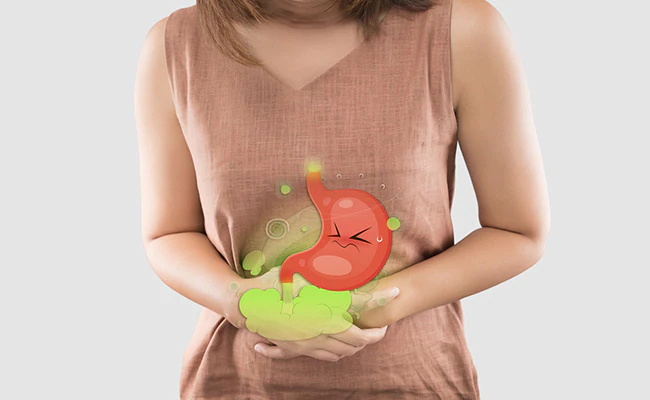
Managing stress is essential for maintaining a healthy gut. Here are some effective strategies to help you reduce stress and support your digestive health:
- Mindfulness and Meditation: Practicing mindfulness and meditation can help calm the mind and reduce stress. Techniques such as deep breathing, progressive muscle relaxation, and guided imagery can be beneficial.
- Regular Physical Activity: Exercise is a powerful stress-reliever. Activities such as walking, jogging, yoga, and tai chi can help reduce stress and promote overall well-being.
- Adequate Sleep: Quality sleep is crucial for managing stress and supporting gut health. Aim for 7-9 hours of sleep per night and establish a consistent sleep routine.
- Healthy Diet: Eating a balanced, nutrient-rich diet can help support your body’s stress response. Avoid excessive caffeine, sugar, and processed foods, which can exacerbate stress.
- Social Support: Connecting with friends, family, or support groups can provide emotional support and help reduce stress levels.
- Hobbies and Interests: Engaging in activities you enjoy can provide a positive distraction from stress and promote relaxation.
- Professional Help: If stress becomes overwhelming, consider seeking help from a mental health professional, such as a therapist or counselor.
Stress-Reducing Practices for Gut Health

Incorporating stress-reducing practices into your daily routine can have a positive impact on your gut health:
- Deep Breathing Exercises: Practice deep breathing exercises to activate the parasympathetic nervous system, which helps promote relaxation and reduce stress.
- Yoga and Stretching: Yoga and stretching exercises can help reduce muscle tension and promote relaxation, benefiting both the mind and body.
- Nature Walks: Spending time in nature can have a calming effect on the mind and help reduce stress levels.
- Gratitude Journaling: Keeping a gratitude journal can help shift your focus to positive aspects of life and reduce stress.
- Limit Screen Time: Reducing screen time, especially before bed, can help improve sleep quality and reduce stress.
Managing stress is essential for maintaining a healthy gut. By incorporating stress-reducing practices such as mindfulness, regular exercise, adequate sleep, and a healthy diet, you can support your gut health and overall well-being. In the next chapter, we will explore the role of sleep in gut health and provide tips for improving sleep quality to enhance your digestive health.
Step 8: The Role of Sleep in Gut Health

Sleep is a critical component of overall health, and its impact on gut health is profound. Quality sleep supports the body’s natural processes, including digestion and the maintenance of a healthy gut microbiome. In this chapter, we will explore the connection between sleep and gut health, the consequences of poor sleep on digestion, and practical tips to improve sleep quality for optimal gut function.
The Connection Between Sleep and Gut Health

The relationship between sleep and gut health is bidirectional, meaning that sleep quality can affect gut health, and gut health can influence sleep quality. The gut microbiome plays a role in regulating sleep by producing and modulating neurotransmitters and hormones involved in the sleep-wake cycle, such as serotonin and melatonin.
Consequences of Poor Sleep on Gut Health
Inadequate or poor-quality sleep can have several negative effects on gut health:
- Disrupted Gut Microbiome: Poor sleep can alter the composition of the gut microbiome, reducing the diversity and abundance of beneficial bacteria.
- Increased Gut Permeability: Lack of sleep can compromise the integrity of the gut lining, leading to increased gut permeability, or “leaky gut,” which allows harmful substances to enter the bloodstream.
- Impaired Digestion: Sleep deprivation can affect the production of digestive enzymes and stomach acid, hindering the breakdown and absorption of nutrients.
- Increased Inflammation: Poor sleep is associated with increased levels of inflammation, which can exacerbate digestive disorders and negatively impact gut health.
- Altered Appetite Regulation: Sleep deprivation can disrupt the hormones that regulate appetite, leading to increased cravings for unhealthy foods and overeating, which can negatively impact gut health.
Tips for Improving Sleep Quality
Improving sleep quality can have a positive impact on gut health. Here are some practical tips to help you achieve better sleep:
- Establish a Consistent Sleep Routine: Go to bed and wake up at the same time every day, even on weekends, to regulate your body’s internal clock.
- Create a Relaxing Bedtime Routine: Develop a calming pre-sleep routine that may include activities such as reading, taking a warm bath, or practicing relaxation techniques like deep breathing or meditation.
- Optimize Your Sleep Environment: Ensure your bedroom is conducive to sleep by keeping it dark, quiet, and cool. Consider using blackout curtains, earplugs, or a white noise machine if needed.
- Limit Exposure to Screens: Avoid using electronic devices such as smartphones, tablets, and computers at least an hour before bedtime, as the blue light emitted can interfere with the production of melatonin, the sleep hormone.
- Watch Your Diet: Avoid large meals, caffeine, and alcohol close to bedtime, as they can disrupt sleep. Instead, opt for a light snack if you feel hungry before bed.
- Stay Active: Regular physical activity can promote better sleep, but avoid vigorous exercise close to bedtime as it may have a stimulating effect.
- Manage Stress: Incorporate stress-reducing practices into your daily routine to help calm your mind and prepare your body for restful sleep.
Sleep-Friendly Foods

Certain foods can support sleep quality by promoting relaxation and the production of sleep-inducing hormones. Consider incorporating these sleep-friendly foods into your diet:
- Almonds: Rich in magnesium, which can help relax muscles and promote sleep.
- Kiwi: Contains antioxidants and serotonin, which may improve sleep quality.
- Chamomile Tea: Known for its calming effects and ability to improve sleep.
- Tart Cherry Juice: Contains melatonin, which can help regulate the sleep-wake cycle.
- Fatty Fish: High in omega-3 fatty acids and vitamin D, which may enhance sleep quality.
- Turkey: Contains tryptophan, an amino acid that promotes the production of melatonin.
Quality sleep is essential for maintaining a healthy gut. By prioritizing good sleep hygiene, managing stress, and incorporating sleep-friendly foods into your diet, you can support your digestive health and overall well-being. In the next chapter, we will explore the importance of physical activity for gut health and provide practical tips for incorporating exercise into your daily routine.
Step 9: The Impact of Physical Activity on Gut Health

Physical activity is a cornerstone of overall health and well-being, and its benefits extend to gut health. Regular exercise supports digestion, promotes a healthy gut microbiome, and reduces inflammation. In this chapter, we will explore the relationship between physical activity and gut health, the benefits of exercise for the digestive system, and practical tips for incorporating physical activity into your daily routine.
How Physical Activity Benefits Gut Health
Exercise has a multifaceted impact on gut health. Here are some key ways in which physical activity supports a healthy digestive system:
- Enhanced Gut Motility: Exercise stimulates the muscles in the digestive tract, helping to move food through the intestines more efficiently. This can reduce the risk of constipation and promote regular bowel movements.
- Improved Gut Microbiome: Physical activity can positively influence the composition and diversity of the gut microbiome. Regular exercise has been shown to increase the abundance of beneficial bacteria, which play a crucial role in digestion, immune function, and overall health.
- Reduced Inflammation: Chronic inflammation is linked to various gut disorders, including irritable bowel syndrome (IBS) and inflammatory bowel disease (IBD). Exercise can help reduce inflammation by modulating the immune response and decreasing the production of pro-inflammatory cytokines.
- Stress Reduction: Physical activity is a powerful stress-reliever. Since chronic stress can negatively impact gut health, reducing stress through exercise can help improve digestive function and gut health.
- Weight Management: Maintaining a healthy weight is important for gut health, as excess weight and obesity are associated with various digestive issues. Regular exercise can help manage weight and reduce the risk of developing gut-related problems.
Types of Physical Activity for Gut Health
Incorporating a variety of physical activities into your routine can provide comprehensive benefits for gut health. Here are some types of exercise to consider:
- Aerobic Exercise: Activities such as walking, jogging, cycling, and swimming increase heart rate and stimulate gut motility. Aim for at least 150 minutes of moderate-intensity aerobic exercise per week.
- Strength Training: Resistance exercises, such as weight lifting and bodyweight exercises, help build muscle and support overall metabolic health. Include strength training exercises at least two days per week.
- Yoga and Stretching: Yoga and stretching exercises promote relaxation, reduce stress, and improve flexibility. They can also stimulate digestive organs and enhance gut motility.
- High-Intensity Interval Training (HIIT): HIIT involves short bursts of intense exercise followed by periods of rest or low-intensity exercise. This type of workout can boost metabolism and improve cardiovascular health.
Practical Tips for Incorporating Physical Activity

Incorporating regular physical activity into your daily routine can be challenging, but with some planning and commitment, it is achievable. Here are practical tips to help you get started:
- Set Realistic Goals: Start with small, achievable goals and gradually increase the intensity and duration of your workouts. Consistency is key to long-term success.
- Find Activities You Enjoy: Choose activities that you enjoy and look forward to, whether it’s dancing, hiking, playing a sport, or practicing yoga. Enjoyable activities are more likely to become lasting habits.
- Create a Schedule: Plan your workouts and incorporate them into your daily schedule. Treat exercise as a non-negotiable part of your day, just like any other important appointment.
- Stay Active Throughout the Day: Look for opportunities to stay active throughout the day, such as taking the stairs instead of the elevator, walking or biking to work, or doing short bursts of activity during breaks.
- Join a Group or Class: Exercising with others can provide motivation, accountability, and social support. Consider joining a fitness class, sports team, or walking group.
- Track Your Progress: Keep a journal or use a fitness app to track your workouts and monitor your progress. Seeing your improvements can provide motivation and a sense of accomplishment.
- Listen to Your Body: Pay attention to your body’s signals and adjust your exercise routine as needed. Rest and recovery are important components of a balanced fitness program.
Exercise and Specific Gut Conditions
Certain gut conditions may benefit from tailored exercise approaches. Here are some considerations for individuals with specific gut-related issues:
- Irritable Bowel Syndrome (IBS): Low-impact activities such as walking, yoga, and swimming can help reduce symptoms of IBS by promoting gut motility and reducing stress.
- Inflammatory Bowel Disease (IBD): Gentle exercises such as yoga and tai chi can help manage stress and reduce inflammation. High-intensity exercises should be approached with caution and under the guidance of a healthcare professional.
- Constipation: Aerobic exercises such as brisk walking, jogging, and cycling can stimulate bowel movements and alleviate constipation.
- Acid Reflux: Avoid high-impact exercises that may exacerbate symptoms. Opt for low-impact activities like walking or swimming and avoid exercising immediately after meals.
Regular physical activity is essential for maintaining a healthy gut. By incorporating a variety of exercises into your routine, setting realistic goals, and finding activities you enjoy, you can support your digestive health and overall well-being. In the next chapter, we will delve into the significance of probiotics and prebiotics for gut health, exploring their roles, sources, and benefits.
Step 10: The Power of Probiotics and Prebiotics

Probiotics and prebiotics play a crucial role in maintaining a healthy gut microbiome, which is essential for optimal digestive function and overall health. In this chapter, we will explore the differences between probiotics and prebiotics, their benefits for gut health, and practical ways to incorporate them into your diet.
Understanding Probiotics and Prebiotics
Probiotics are live microorganisms, primarily bacteria and yeasts, that provide health benefits when consumed in adequate amounts. They are often referred to as “good” or “beneficial” bacteria because they help maintain a balanced gut microbiome.
Prebiotics are non-digestible fibers and compounds found in certain foods that act as food for the beneficial bacteria in the gut. They help stimulate the growth and activity of probiotics, promoting a healthy gut environment.
Benefits of Probiotics
Probiotics offer a range of benefits for gut health and beyond:
- Restoring Gut Microbiome Balance: Probiotics can help replenish beneficial bacteria, especially after antibiotic use or illness, restoring a healthy balance in the gut microbiome.
- Enhancing Digestion and Nutrient Absorption: Probiotics aid in the breakdown of food and the absorption of nutrients, improving overall digestive function.
- Boosting Immune Function: A healthy gut microbiome supports the immune system by preventing the growth of harmful bacteria and enhancing the body’s immune response.
- Reducing Inflammation: Probiotics can help reduce gut inflammation, which is linked to various digestive disorders and chronic diseases.
- Alleviating Digestive Disorders: Probiotics can help manage symptoms of conditions such as irritable bowel syndrome (IBS), inflammatory bowel disease (IBD), and diarrhea.
Benefits of Prebiotics
Prebiotics support gut health by nourishing the beneficial bacteria in the gut:
- Promoting Beneficial Bacteria Growth: Prebiotics provide the necessary nutrients for beneficial bacteria to thrive, enhancing the overall health of the gut microbiome.
- Improving Digestion: Prebiotics can help improve digestion by supporting the growth of probiotics, which aid in breaking down food and absorbing nutrients.
- Supporting Immune Function: By promoting a healthy gut microbiome, prebiotics can enhance the immune system’s ability to fend off infections and illnesses.
- Reducing Gut Inflammation: Prebiotics can help reduce inflammation in the gut, contributing to improved digestive health and reduced risk of chronic diseases.
- Regulating Bowel Movements: Prebiotics can help improve bowel regularity and prevent constipation by increasing the production of short-chain fatty acids (SCFAs), which stimulate bowel movements
Sources of Probiotics

Probiotics can be found in various fermented foods and dietary supplements. Here are some common sources of probiotics:
- Yogurt: Yogurt is one of the most well-known sources of probiotics. Look for yogurt that contains live and active cultures.
- Kefir: This fermented milk drink is rich in probiotics and can be a great addition to your diet.
- Sauerkraut: Fermented cabbage is an excellent source of probiotics, particularly if it is unpasteurized.
- Kimchi: This spicy Korean fermented vegetable dish is packed with beneficial bacteria.
- Miso: A traditional Japanese seasoning made from fermented soybeans, miso is a good source of probiotics.
- Tempeh: Another fermented soybean product, tempeh is rich in probiotics and also provides a good source of protein.
- Pickles: Naturally fermented pickles (not those made with vinegar) can be a good source of probiotics.
- Kombucha: This fermented tea drink is becoming increasingly popular as a probiotic-rich beverage.
Incorporating Probiotics and Prebiotics into Your Diet
To support a healthy gut microbiome, it’s important to include both probiotics and prebiotics in your diet. Here are some tips for incorporating these beneficial components into your daily meals:
- Start Your Day with a Probiotic-Rich Breakfast: Include yogurt or kefir in your breakfast. Add some sliced bananas or oats for a prebiotic boost.
- Snack on Prebiotic Foods: Enjoy snacks like raw garlic, onions, or asparagus with your meals. You can also have a handful of nuts or seeds.
- Add Fermented Foods to Your Meals: Incorporate fermented foods such as sauerkraut, kimchi, or pickles into your lunch or dinner.
- Make Smoothies: Blend probiotic-rich kefir or yogurt with prebiotic foods like bananas and oats for a nutritious and gut-friendly smoothie.
- Experiment with Recipes: Try new recipes that include probiotic and prebiotic foods, such as miso soup, tempeh stir-fry, or a chicory root salad.
- Supplement Wisely: If you find it challenging to get enough probiotics and prebiotics from food alone, consider taking a high-quality supplement. Consult with a healthcare professional to find the right one for you.
Choosing the Right Probiotic Supplement
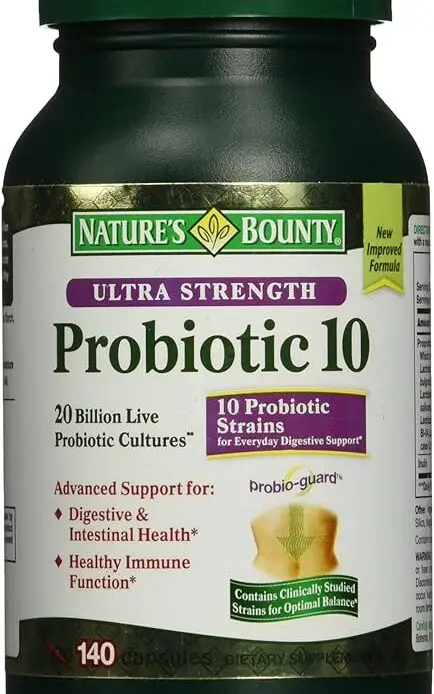
When selecting a probiotic supplement, it’s important to consider several factors to ensure you choose a high-quality product:
- Strain Diversity: Look for a supplement that contains a variety of probiotic strains, as different strains offer different benefits.
- CFU Count: The colony-forming unit (CFU) count indicates the number of live microorganisms in the supplement. Aim for a product with at least 1 billion CFUs per serving.
- Delivery Method: Some probiotics are more effective in certain forms, such as capsules, powders, or liquid. Choose a delivery method that fits your preferences and lifestyle.
- Storage Requirements: Check whether the supplement needs to be refrigerated to maintain its potency.
- Expiration Date: Ensure the supplement is not expired and that it will remain potent throughout its shelf life.
- Quality Assurance: Choose supplements from reputable brands that undergo third-party testing for quality and purity.
Probiotics and prebiotics are powerful tools for maintaining a healthy gut microbiome and supporting overall digestive health. By incorporating a variety of probiotic-rich and prebiotic-rich foods into your diet, you can promote a balanced gut environment and improve your overall well-being. In the next chapter, we will explore the role of hydration in gut health and provide practical tips for ensuring you stay adequately hydrated.
Step 11: The Importance of Hydration for Gut Health

Staying properly hydrated is crucial for maintaining optimal gut health. Water is essential for digestion, nutrient absorption, and the elimination of waste. In this chapter, we will explore the role of hydration in gut health, the consequences of dehydration, and practical tips for ensuring you drink enough water throughout the day.
The Role of Hydration in Digestion
Water plays several important roles in the digestive process:
- Saliva Production: Water is a key component of saliva, which helps break down food and initiate the digestive process.
- Digestive Enzymes: Adequate hydration is necessary for the production and function of digestive enzymes that break down food into nutrients.
- Nutrient Absorption: Water helps dissolve nutrients and transport them across the intestinal lining into the bloodstream.
- Stool Formation and Elimination: Water helps soften stool, making it easier to pass and preventing constipation.
- Maintaining Gut Lining Integrity: Proper hydration supports the mucosal lining of the gut, which acts as a barrier to protect against harmful substances.
Consequences of Dehydration on Gut Health
Dehydration can have several negative effects on gut health:
- Constipation: Without adequate water, stool can become hard and difficult to pass, leading to constipation.
- Impaired Digestion: Dehydration can hinder the production of digestive enzymes and stomach acid, impairing the breakdown and absorption of nutrients.
- Increased Gut Permeability: Dehydration can compromise the integrity of the gut lining, leading to increased gut permeability or “leaky gut.”
- Disrupted Gut Microbiome: Adequate hydration supports a healthy gut microbiome, while dehydration can disrupt the balance of beneficial bacteria.
- Reduced Immune Function: Dehydration can weaken the immune system, making the body more susceptible to infections and illnesses.
Practical Tips for Staying Hydrated
Ensuring you stay properly hydrated throughout the day is essential for maintaining gut health. Here are some practical tips to help you stay hydrated:
- Drink Plenty of Water: Aim to drink at least 8-10 glasses (64-80 ounces) of water per day. Individual needs may vary based on factors such as age, gender, activity level, and climate.
- Start Your Day with Water: Begin your day by drinking a glass of water to rehydrate your body after a night’s sleep.
- Carry a Water Bottle: Keep a reusable water bottle with you throughout the day to remind yourself to drink water regularly.
- Eat Hydrating Foods: Incorporate water-rich foods into your diet, such as fruits (e.g., watermelon, oranges, strawberries), vegetables (e.g., cucumbers, celery, lettuce), and soups.
- Set Reminders: Use phone apps or alarms to remind you to drink water at regular intervals.
- Flavor Your Water: If you find plain water boring, add natural flavorings such as lemon, lime, mint, or cucumber to make it more enjoyable.
- Monitor Your Urine: Check the color of your urine to gauge your hydration level. Clear or light yellow urine usually indicates proper hydration, while dark yellow urine may signal dehydration.
- Hydrate Before, During, and After Exercise: Ensure you drink water before, during, and after physical activity to replace fluids lost through sweat.
- Limit Caffeine and Alcohol: Both caffeine and alcohol can have diuretic effects, leading to increased water loss. Consume these beverages in moderation and compensate with additional water intake.
Hydration is essential for maintaining a healthy gut and supporting overall digestive function. By prioritizing adequate water intake and incorporating hydrating foods into your diet, you can promote a healthy gut environment and enhance your well-being. In the next chapter, we will delve into the importance of mindful eating and how it can positively impact your gut health.
Step 12: The Benefits of Mindful Eating for Gut Health

Mindful eating is a practice that involves paying full attention to the experience of eating, including the taste, texture, and aroma of food, as well as recognizing hunger and fullness cues. This approach can significantly benefit gut health by improving digestion, reducing stress, and promoting a healthier relationship with food. In this chapter, we will explore the principles of mindful eating, its benefits for gut health, and practical tips for incorporating mindful eating into your daily life.
Principles of Mindful Eating
Mindful eating is rooted in mindfulness, a practice that encourages being present and fully engaged in the current moment. Here are some key principles of mindful eating:
- Eat Slowly and Chew Thoroughly: Take your time to chew food completely and savor each bite. This aids digestion and helps you recognize when you are full.
- Eliminate Distractions: Focus solely on eating by turning off the TV, putting away your phone, and avoiding other distractions. This allows you to fully experience and enjoy your meal.
- Listen to Your Body: Pay attention to your body’s hunger and fullness cues. Eat when you are hungry and stop when you are comfortably full.
- Appreciate Your Food: Take a moment to appreciate the colors, textures, and flavors of your food. Express gratitude for the nourishment it provides.
- Engage Your Senses: Notice the smell, taste, and texture of your food. Engage all your senses to enhance the eating experience.
- Reflect on Your Eating Habits: Consider why you are eating and whether you are truly hungry. Avoid eating out of boredom, stress, or habit.
Benefits of Mindful Eating for Gut Health
Practicing mindful eating can offer numerous benefits for gut health:
- Improved Digestion: Eating slowly and chewing thoroughly helps break down food more effectively, making it easier for the digestive system to process and absorb nutrients.
- Reduced Overeating: By paying attention to hunger and fullness cues, mindful eating can help prevent overeating, which can lead to digestive discomfort and weight gain.
- Enhanced Nutrient Absorption: Mindful eating can improve the absorption of nutrients by promoting proper chewing and digestion.
- Lower Stress Levels: Mindfulness practices, including mindful eating, can reduce stress, which is beneficial for gut health. Stress negatively impacts digestion and can exacerbate gut issues.
- Better Food Choices: Being mindful about your eating habits can lead to healthier food choices and a more balanced diet.
Practical Tips for Practicing Mindful Eating
Incorporating mindful eating into your daily routine can be challenging at first, but with practice, it can become a natural part of your eating habits. Here are some practical tips to help you get started:
- Create a Calm Eating Environment: Set up a peaceful and comfortable space for meals. Avoid eating on the go or in front of screens.
- Take Smaller Bites: Cut your food into smaller pieces and take smaller bites to encourage slower eating.
- Put Down Your Utensils: Between bites, put down your fork or spoon to pace your eating and allow time for chewing.
- Savor Each Bite: Focus on the flavors, textures, and aromas of your food. Take time to fully experience each bite.
- Practice Gratitude: Before eating, take a moment to express gratitude for your food and the effort that went into preparing it.
- Check in with Your Hunger: Periodically pause during your meal to assess your hunger and fullness levels. Adjust your eating accordingly.
- Engage Your Senses: Use all your senses to enhance your eating experience. Notice the appearance, smell, taste, and texture of your food.
- Eat with Others: Sharing meals with others can make eating a more enjoyable and mindful experience.
Mindful eating is a powerful practice that can significantly improve gut health by enhancing digestion, reducing stress, and promoting a healthier relationship with food. By incorporating the principles of mindful eating into your daily life, you can support your digestive system and overall well-being. In the next chapter, we will explore the connection between sleep and gut health and provide strategies for improving your sleep quality to benefit your gut.
Step 13: The Connection Between Sleep and Gut Health

Adequate sleep is essential for overall health, including gut health. Poor sleep can negatively impact the gut microbiome, digestion, and immune function. In this chapter, we will explore the relationship between sleep and gut health, the consequences of sleep deprivation, and practical tips for improving sleep quality to support a healthy gut.
The Relationship Between Sleep and Gut Health
The connection between sleep and gut health is bidirectional, meaning that they influence each other. Here are some key ways in which sleep and gut health are interconnected:
- Gut Microbiome Balance: Sleep helps regulate the gut microbiome, promoting a healthy balance of beneficial bacteria. Disruptions in sleep can negatively affect the composition and diversity of the gut microbiome.
- Digestive Function: Adequate sleep supports the proper functioning of the digestive system. Poor sleep can lead to digestive issues such as acid reflux, indigestion, and irritable bowel syndrome (IBS).
- Immune Function: Sleep is crucial for maintaining a healthy immune system. A compromised immune system can lead to increased gut inflammation and susceptibility to infections.
- Hormonal Regulation: Sleep helps regulate hormones that influence appetite and digestion, such as ghrelin and leptin. Disrupted sleep can lead to hormonal imbalances that affect gut health.
Consequences of Sleep Deprivation on Gut Health

Lack of sleep can have several negative effects on gut health, including:
- Impaired Gut Barrier Function: Sleep deprivation can compromise the integrity of the gut barrier, leading to increased gut permeability or “leaky gut.”
- Increased Inflammation: Poor sleep can lead to increased levels of inflammation in the gut, contributing to digestive disorders and chronic diseases.
- Disrupted Gut Microbiome: Lack of sleep can negatively impact the diversity and composition of the gut microbiome, reducing the abundance of beneficial bacteria.
- Digestive Issues: Sleep deprivation can exacerbate digestive problems such as acid reflux, indigestion, and constipation.
Practical Tips for Improving Sleep Quality
Improving sleep quality is essential for supporting gut health. Here are some practical tips to help you achieve better sleep:
- Establish a Sleep Routine: Go to bed and wake up at the same time every day, even on weekends, to regulate your body’s internal clock.
- Create a Relaxing Bedtime Routine: Engage in calming activities before bed, such as reading, meditating, or taking a warm bath, to signal to your body that it is time to wind down.
- Limit Screen Time: Avoid screens (phones, tablets, computers, TVs) at least an hour before bed, as the blue light emitted can interfere with your sleep.
- Create a Sleep-Friendly Environment: Make your bedroom conducive to sleep by keeping it cool, dark, and quiet. Consider using blackout curtains, earplugs, or a white noise machine.
- Watch Your Diet: Avoid heavy meals, caffeine, and alcohol close to bedtime, as they can disrupt sleep. Opt for light, sleep-promoting snacks if you are hungry before bed.
- Exercise Regularly: Regular physical activity can improve sleep quality, but avoid vigorous exercise close to bedtime.
- Manage Stress: Practice stress-reducing techniques such as deep breathing, meditation, or yoga to calm your mind and prepare for sleep.
- Limit Naps: While short naps can be refreshing, avoid long or irregular napping during the day, as it can interfere with nighttime sleep.
Adequate sleep is vital for maintaining a healthy gut and supporting overall digestive function. By prioritizing sleep and implementing strategies to improve sleep quality, you can promote a healthy gut microbiome and enhance your well-being. In the next chapter, we will discuss the impact of stress on gut health and provide techniques for managing stress to support a healthy gut.
Step 14: Avoiding Gut Health Destroyers
Your gut health plays a critical role in your overall well-being. It’s not just about digestion; it affects everything from your immune system to your mood. However, many everyday habits can sabotage your gut health. Let’s explore these gut health destroyers and discover how to avoid them for a healthier, happier life.
Common Gut Health Destroyers
Processed Foods and Additives

Processed foods often contain high levels of sugar, unhealthy fats, and artificial additives. These substances can disrupt the balance of the gut microbiota, leading to inflammation and other digestive problems. Artificial sweeteners such as aspartame and sucralose can also negatively impact gut bacteria, promoting the growth of harmful microorganisms.
Tips to Avoid Processed Foods:
- Opt for whole, unprocessed foods such as fruits, vegetables, whole grains, and lean proteins.
- Read labels carefully to avoid products with added sugars and artificial additives.
- Cook meals at home using fresh ingredients to control the quality and composition of your food.
Excessive Alcohol Consumption

Alcohol can cause inflammation and irritation in the gut lining, leading to leaky gut syndrome where toxins and bacteria can enter the bloodstream. Excessive alcohol consumption is also linked to a decrease in beneficial gut bacteria and an increase in harmful bacteria.
Tips to Reduce Alcohol Intake:
- Limit alcohol consumption to moderate levels (up to one drink per day for women and up to two drinks per day for men).
- Choose lower-alcohol options such as wine or light beer.
- Incorporate alcohol-free days into your week to give your gut a break.
Antibiotics Overuse

While antibiotics are essential for treating bacterial infections, their overuse can wreak havoc on the gut microbiome. Antibiotics do not discriminate between harmful and beneficial bacteria, often leading to a significant reduction in gut diversity.
Tips to Manage Antibiotic Use:
- Only use antibiotics when prescribed by a healthcare professional.
- Complete the full course of antibiotics to prevent the development of resistant bacteria.
- Take probiotics during and after antibiotic treatment to help restore gut flora.
Avoiding gut health destroyers is crucial for maintaining a balanced and healthy digestive system. By being mindful of what we eat and drink, managing stress, staying active, and seeking professional advice when needed, we can protect our gut health and overall well-being. Implementing these strategies will not only enhance digestion but also support a robust immune system and improve mental health.
Step 15: Monitoring Progress and Adjusting for Optimal Gut Health

Tracking Your Symptoms
Keeping a journal to monitor your symptoms and dietary habits can be a valuable tool in maintaining gut health. Document any changes in your digestion, mood, and overall well-being. Pay attention to patterns that may indicate specific foods or behaviors that affect your gut health.
Tips for Effective Tracking:
- Record daily food intake, including portion sizes and ingredients.
- Note any digestive symptoms such as bloating, gas, or discomfort.
- Track other symptoms like energy levels, sleep quality, and mood.
Regular Check-Ins

Schedule regular check-ins with your healthcare provider to assess your gut health. These check-ins can help identify any underlying issues and ensure that your gut health strategies are effective.
Professional Assessments:
- Comprehensive stool analysis to monitor gut microbiota composition.
- Blood tests to check for inflammation or nutrient deficiencies.
- Personalized dietary recommendations based on your health status.
Adjusting Your Diet and Lifestyle

Based on your observations and professional advice, make necessary adjustments to your diet and lifestyle. This might involve eliminating certain foods, incorporating new ones, or changing your exercise or sleep routines.
Dietary Adjustments:
- Increase intake of fiber-rich foods to support beneficial bacteria.
- Avoid foods that consistently trigger symptoms.
- Experiment with probiotic and prebiotic foods to find what works best for you.
Lifestyle Adjustments:
- Incorporate stress management techniques like yoga or meditation.
- Adjust your exercise routine to include both aerobic and strength training activities.
- Ensure adequate hydration and quality sleep.
Listening to Your Body
Your body often signals what it needs. Pay attention to hunger and fullness cues, and be mindful of how different foods and activities affect your gut health.
Mindful Practices:
- Eat when you’re hungry and stop when you’re full.
- Notice how different foods make you feel physically and emotionally.
- Adjust portion sizes and meal timing based on your body’s responses.
Seeking Support
Sometimes, managing gut health can be challenging. Don’t hesitate to seek support from healthcare professionals, nutritionists, or support groups. Sharing experiences and getting expert advice can provide motivation and valuable insights.
Here are several reasons why seeking support can be beneficial:
Expert Guidance
Healthcare Professionals:
- Doctors: They can provide medical evaluations to rule out underlying conditions such as Irritable Bowel Syndrome (IBS), Crohn’s disease, or celiac disease.
- Gastroenterologists: Specialists in digestive health can offer advanced diagnostic tests and treatments tailored to your specific issues.
Nutritionists and Dietitians:
- Personalized Nutrition Plans: They can create customized meal plans that cater to your unique digestive needs, considering any food intolerances or allergies.
- Education and Resources: They can educate you about probiotics, prebiotics, and other dietary supplements that may benefit your gut health.
Monitoring progress and adjusting your strategies are key components of maintaining optimal gut health. By tracking symptoms, making informed dietary and lifestyle changes, and seeking professional support when needed, you can ensure that your gut remains healthy and balanced. This proactive approach will not only enhance your digestive health but also support your overall well-being.
Step 16: Long-Term Maintenance Strategies

Maintaining optimal gut health is essential for overall well-being, influencing digestion, immunity, and even mental health. This comprehensive guide focuses on sustainable strategies to support a healthy gut over the long term. Understanding gut health involves balancing the intricate ecosystem of bacteria and microorganisms within the gastrointestinal tract, influenced by factors such as diet, lifestyle, stress, and medications.
Keeping A Balanced Diet
A key aspect of promoting gut health lies in dietary strategies. A balanced diet rich in fiber, antioxidants, and probiotic foods like yogurt and kefir fosters a diverse microbiome essential for digestive health. Conversely, minimizing processed foods and sugars helps maintain gut flora balance. Adequate hydration is equally crucial, facilitating digestion and nutrient absorption. Aim to drink at least eight glasses of water daily to support optimal gut function.
Stress Management
Effective stress management techniques such as meditation, yoga, or regular exercise play a vital role in maintaining a healthy gut-brain connection. Chronic stress can disrupt gut microbiota balance and increase inflammation, underscoring the importance of these practices. Quality sleep is another cornerstone of gut health, allowing the body to repair and regenerate, crucial for a balanced microbiome.
Avoiding Excessive Alcohol & Smoking
Avoiding harmful substances like excessive alcohol and smoking is paramount for protecting gut health. These substances can disrupt gut microbiota composition and lead to inflammation, undermining digestive health. Instead, opt for herbal teas, water, or natural fruit juices as healthier alternatives. Regular health check-ups with a healthcare provider are essential for monitoring gut health status. Discuss any digestive concerns or symptoms during these visits to ensure timely intervention.
Seeking Support
Educating oneself through credible resources and seeking support from healthcare professionals or online communities provides valuable insights and encouragement. Journaling daily food intake, symptoms, and stress levels can help identify patterns and make informed decisions regarding dietary and lifestyle adjustments. Meal planning incorporating probiotic-rich foods, fiber, and balanced nutrients supports gut health goals.
Embracing these holistic strategies fosters a resilient gut microbiome, promoting improved digestion, enhanced immunity, and overall well-being. By integrating consistent dietary habits, regular physical activity, stress management techniques, quality sleep, and avoiding harmful substances, individuals can achieve sustained improvements in gut health. Incorporating journaling, meal planning, and regular health check-ups into this framework enhances accountability and supports long-term gut health maintenance.
References
- Qin, Junjie, et al. “A human gut microbial gene catalog established by metagenomic sequencing.” Nature 464.7285 (2010): 59-65. DOI: 10.1038/nature08821
- Sonnenburg, Justin L., and Fredrik Bäckhed. “Diet-microbiota interactions as moderators of human metabolism.” Nature 535.7610 (2016): 56-64. DOI: 10.1038/nature18846
- Mayer, Emeran A., et al. “Gut/brain axis and the microbiota.” Journal of Clinical Investigation 125.3 (2015): 926-938. DOI: 10.1172/JCI76304
- Lloyd-Price, Jason, et al. “The healthy human microbiome consortium.” Cell 166.4 (2016): 789-800. DOI: 10.1016/j.cell.2016.07.001
- Clemente, Jose C., et al. “The impact of the gut microbiota on human health: an integrative review.” Cell 148.6 (2012): 1258-1270. DOI: 10.1016/j.cell.2012.01.035
- Round, June L., and Sarkis K. Mazmanian. “The gut microbiota shapes intestinal immune responses during health and disease.” Nature Reviews Immunology 9.5 (2009): 313-323. DOI: 10.1038/nri2515
- Rooks, Michelle G., and Wendy S. Garrett. “Gut microbiota, metabolites and host immunity.” Nature Reviews Immunology 16.6 (2016): 341-352. DOI: 10.1038/nri.2016.42
- Rezasoltani, Sama, et al. “The gut microbiome in celiac disease and probiotics.” Nutrients 12.8 (2020): 2328. DOI: 10.3390/nu12082328Saffouri, Golriz, et al. “Small intestinal microbial dysbiosis underlies symptoms associated with functional gastrointestinal disorders.” Nature Communications 10.1 (2019): 1-15. DOI: 10.1038/s41467-019-09964-7
- David, Lawrence A., and Susan P. Turnbaugh. “Host-microbial coevolution in the human gut microbiome.” Nature 535.7610 (2016): 56-64. DOI: 10.1038/nature18849Wu, Gary D., et al. “Linking long-term dietary patterns with gut microbial enterotypes.” Science 334.6052 (2011): 105-108. DOI: 10.1126/science.1208344
- Roberfroid, Marcel B. “Prebiotics: the concept revisited.” The Journal of Nutrition 137.3 (2007): 830S-837S. DOI: 10.1093/jn/137.3.830SHill, Colin, et al. “Expert consensus document: The International Scientific Association for Probiotics and Prebiotics consensus statement on the scope and appropriate use of the term probiotic.” Nature Reviews Gastroenterology & Hepatology 11.8 (2014): 506-514. DOI: 10.1038/nrgastro.2014.66
- Foster, Jane A., and Karen-Anne McVey Neufeld. “Gut-brain axis: how the microbiome influences anxiety and depression.” Trends in Neurosciences 36.5 (2013): 305-312. DOI: 10.1016/j.tins.2013.01.005Liang, Shan, et al. “The gut microbiota plays a protective role in the host defence against pneumococcal pneumonia.” Gut 65.4 (2016): 575-583. DOI: 10.1136/gutjnl-2015-309728

